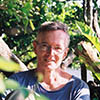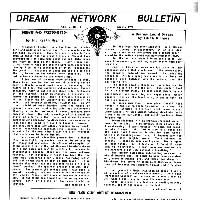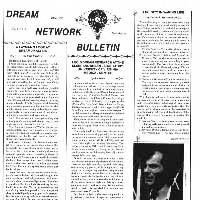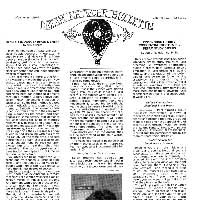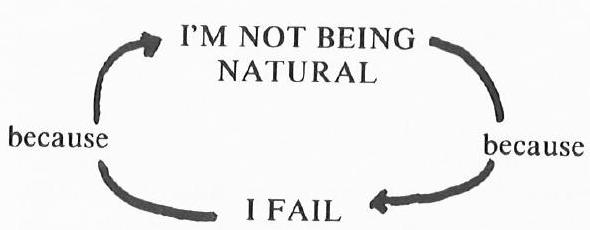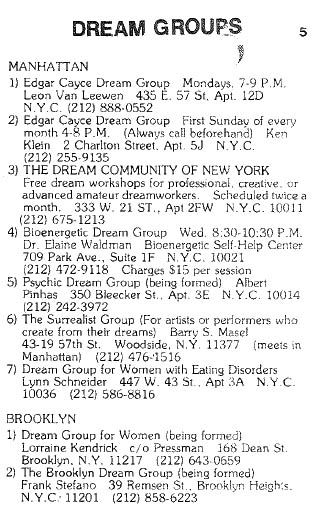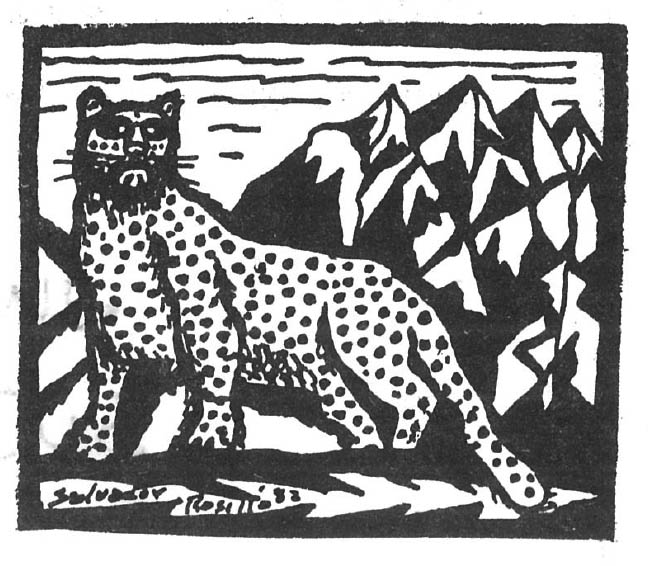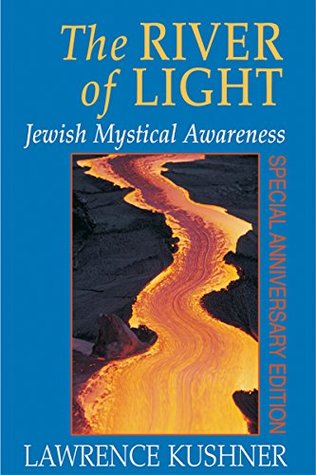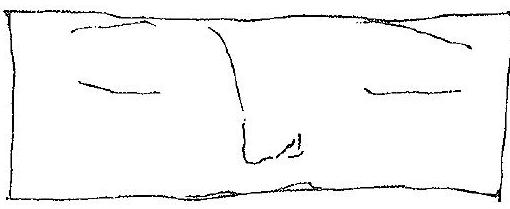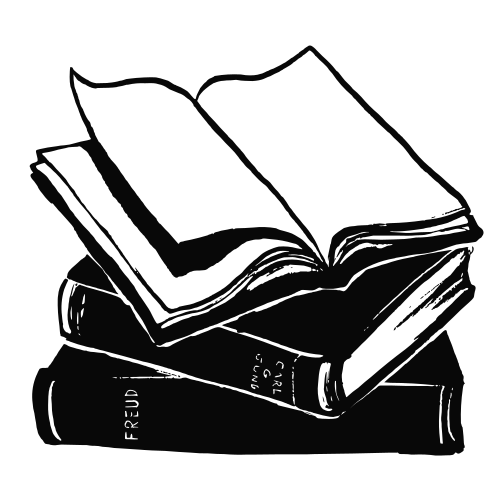In my mind there is no doubt that dreamwork is a supreme tool for developing the modalities of consciousness necessary if a novelist is to become a master of his art and a successful human being. Writing a novel, for me, is identical to working with a dream, only it is a very much more advance. process for, in a very real sense, it entails working with all your dreams at once. Becoming a novelist has been an especially hard task for a person like me. Because it has meant I had to learn how to be. Your level of creativity and genius is a direct function of how well you are able to learn how to be. Be what? Yourself, of course. Fully yourself.
There is a big difference between fabricating a story you think might sell and finding the story that is real in you and that most truthfully expresses - and thus liberates - your feelings, all of them. The ability to contrive has little role in al this. What does count is an ability to see and to recognize and to allow. The story line, like a dream, must be allowed to proceed spontaneously and freely, wholly in the service of the feelings it expresses. Like a dream, the story line is a sequel of images but the whole novel is something closer to life itself.
Each person's life is the product of a unique constellation of essentially recurring dreams. Most people haven't discovered yet the extent to which so many of their dreams are recurring variations of essentially the same set of dreams. Writing a novel entails working with this whole assemblage at once. This isn't easy. It requires the highest form of dreamwork. It carries you, eventually, if you persist, to the farther edges of self-understanding. It can also wreck havoc on your life because it serves as a channel for all the understuff to get out into the open air. This is the last thing most people want. For a novelist it is essential.
Writing skill is not important. It is a result, not a prerequisite of the process. To the extent we repress or control certain of our feelings, we can hardly give very convincing expression to the rest of them, in our writing or in our lives. What results is only nonsense, contradiction, and illusion. The function of good writing is to discover. what is not known, not to express what is. You can see how close the parallel is with dreams.
What is unknown and unknowable to us is that which is connected with feelings which we have but habitually block out of our consciousness. These feelings are the data necessary for our transformation. Except to the extent we can be continually transformed, constantly renewed by love and by work, love and the love of our work dies. It doesn't take too awfully long for this to happen. Our society is mostly a conglomerate of dead marriages and dead marriages to work. In a dead society like this it is small wonder there is so little interest in dreams. Movies and novels, the two are the same thing really, are the only ways the hoardes have of getting deeply in touch with their own repressed or unexpressed feelings.
How do you write? Just start. None of us are all dead and something alive always sprouts out. The message of all art is "Follow that." And this message is none other than the highest technique of art itself. To follow and learn from and immerse yourself in what is most alive in your writing, your life.
To a considerably greater extent than we realize, the answer in life is not to solve life's problems, but to sink into them with an awakened understanding. The kinds of solutions we know and have been imposing on our lives, after all, are themselves the cause of our problems. The very situations you are in have the potential to teach you something you do not know about yourself. It is something you aren't letting yourself feel and experience that is getting in the way of the further unfolding of your life and your work. The technique of control as commonly applied to dreams or to life, is an abuse of this natural learning process. It is the best symptom of stagnation in development. Those who are proponents of dream control are dead, stagnant individuals. Those who rally around these techniques are souls adrift in a - creative morass who are desperately seeking to impose upon their lives and dreams desires and satisfactions that are familiar, old. They are afraid of the new patterns life is sweeping them into. They see it all as a moving backwards. With their control they cling to fixations that have already gone weak. That so many of them manage to cling successfully is evidenced by their dead, false lives. - Dead lives make dead novels, which is only - another reason why it's so important for the novelist to avoid these pitfalls.
I am 37, poverty-bound in New York City, essentially unemployed, increasingly unemployable, and I have allowed a most incredible love relationship to literally fall away from me. I have been brought to this state of emotional and financial destitution by my philosophy of controlling my life as little as I can possibly help it. I am beginning to discover increasingly that I have done the right thing. For about six years I have been working on the same novel. I have come to realize that the various activities, including extensive work with my dreams, that a special woman in my life had viewed as "lazy" or "time wasting" are actually the processes I am using to write the novel. That my book gets done in time to save the relationship wasn't as important to me as it was that it be something real to me, real to the growth and the increase in my life and my ability to love. I wouldn't be pushed into terminating it prematurely. I wouldn't have it taken by society (i.e. translated into societal consciousness) until I'd first developed an awareness of my own consciousness strongly enough so that it could be what was predominantly being expressed to society through my novel.
The whole process is something akin to being repeatedly blown away by a series of strong explosions. The most recent one has been the realization of a tremendous hatred for my mother. It was my mother that violated my being the most. Because I could not allow myself to be conscious of the full extent of this hatred and allow it some meaningful and constructive form of expression, it destroyed my marriage. Continued growth was the only freedom I ever wanted, in marriage or out, a growing closeness to love. And I sabotaged that myself. My novel is what saved me. It was the only place in my life where a very destructive hatred and a very creative love could meet each other in their fullness. In the devastating sequel of attempted formulations these clashing feelings have led me through these last six years or so, a strange unity has emerged. At the bottom-most intensity of my violent rage against my mother, I found love. The two became one when I could stretch my understanding enough to allow enough of the material to surface. Or rather, maybe I should say when I could allow enough of the material to surface to stretch my understanding.
A memory surfaced that gave expression to this new understanding. My mother and I were standing on a boardwalk in the Everglades National Park. She was gazing reflectively at a pitifully meagre alligator floating in lonely vigil in an isolated little pond amongst the mangroves. "Wouldn't it be awful," she remarked at length, "to spend your whole life in one little pond like that." In retrospect I knew that at that moment she had revealed to me the feeling that lay at the root of all the evil and good she had done in her life, and to mine. The very thing I hated her for - never allowing who I was to come out into expression in my body and the world - was her greatest gift to me. I saw how much like her I am. Above all I don't want to be fixated like that little alligator in its murky little pond, or like a prisoner in his cell, or like that average person is in their conditioned mindframe. I know I am more than my little local self, and I will be more. My mother gave me this. It is one of the highest gifts and I will love her and thank her for the rest of my life for it. The hate and rage she caused to grow up in me was the same hate and rage that was seething in her because of the limitations that had been imposed on her. And all the craziness and destructiveness of her life was only a desperate and futile attempt to escape those limitations in one way or another. Certainly it was because unconsciously I always saw this hatred and hurt buried in her that my love for her was so deep and so strong and my allegiance and loyalty to her lasted so far beyond the point when everyone else already saw she was insane.
The same novel that led me back to my father after sixteen years of separation has now led me back to my mother. My father died a week after I was able to return to him with love. My mother died several years before I am finally able to come to an understanding of, and a feeling for the fullness of my love for her. Our powers are small. True movement is slow. I had to realize I was him, I had to realize I was her, before I could begin to really discover what was really myself: something beyond what they could achieve in their marriage - they divorced when I was five - or in their subsequent lives. Now perhaps I am ready to unite in the fullness of love with one other person in order to continue the process of life and family (which is really the highest and most universally debased art form there is) but to continue it on a higher plane, never before attempted by anyone in my family line.
Let me emphasize that although insights and ideas like these arise in the course of my work on the novel, they have no proper role in the novel itself. It is something else than ideas I am exploring with my novels, something closer to life itself. The ideas actually hold this exploration back, like pus can inhibit the healing of an inflammation. It needs to be exuded. The pressure needs to be taken off. The natural healing process makes short work of the infection then. I exude my ideas into my journals or into articles. The story flows all the freer without them.
Ideas can never represent the fullness of feelings or of consciousness itself to the extent that a simple story can. To discover our own story in its fullest richness is to discover who we are. Only then can we start to become. No wonder it takes many years. It involves letting our conscious minds become progressively more open to the powerful constellations of repressed feelings buried in our unconscious. A certain passivity and lack of control is needed to let these buried feel. ings unite in a novel way that can allow them such an overwhelming network of mutually-supporting feeling force that they can rally forth to throw the false Emperor "Our-Brainwashed-ConsciousMinds" out of office, like the Mexicans did Maximillian.
This Maximillian would control us without knowing or considering what we really are or even that we are not anything he can effectively control. The cost of such folly is enormous. He is well-intentioned and tries to be benevolent but he is the thing in the way of what we really are. It is a mindframe too alien to us for us not to reject. Archetypes arise in us like antibodies to reject an organ so alien to our marrow. These archetypes are constellated and energized by repressed feelings. Feelings denied external play go within, to the hinterlands of our minds, to our dreams and inner images, where they meet each other and form alliances and confluences of their power. If the situation is extreme, several archetypes might be activated at once. Then there is a battle between them as to which will emerge the dominate force. It the situation is complex, it is possible that no single one will emerge victorious. Instead a hybrid may be formed. Yes, it is possible for totally new archetypes to form from such recombinations. They have been doing so throughout history and this, indeed, is the creative process. Our minds and our potentials are much more alive than we know.
In the novel, as in the dream, the understanding is one of feeling. The intellectual meaning expresses itself through the feeling and the imagery, which are really one and the same thing. The intellectual knowledge that a dream carries is implicit, not explicit. In a good novel, the same is true. Understanding what we are actually writing about, like dream interpretation, is important only to the extent it aids us in opening up to the thing itself: a language much richer than any we know, a language inherent in the feeling of being, a language whose dimensions are literally infinite, and perhaps whose ultimate dimension is a feeling of this infinity: a feeling at one with it, feeling a part of it, feeling that you and it are one and the same thing. Surely this is the state when fear and fear of death pass away, become impossible. If you are everything and not just yourself, what fear can you have about your own death? What petty tangles can you get into on account of the warped little needs of an ego that never was you anyway but something society grafted on you. You go about your little affairs in the world, yes, but everything is different now. Your senses have become so highly developed that you feel everything. Your understanding grows by leaps and bounds because there is so much new data coming in. Yet because of what you are letting yourself feel, maybe even only now and then, you never for a moment doubt that your understanding is nothing but a shadow to the truth. It is not the truth itself. You can experience the truth itself to the extent you are willing or able to let yourself experience the sensations and nuances of bodily perception that are beyond understanding (because they are the somatic equivalents of repressed or denied or ignored feelings.) The muscular knowledge, the knowledge of the organs, down to the knowledge of the infinite which is the knowledge of the cells themselves and of the molecules and chemicals of which they are. composed: this is the kind of knowledge that the novelist or the dreamworker seeks and sometimes finds.
The issue is not to be sensitive rather than intelligent for there are so many idiots running around in society like this today doing a great deal of damage to themselves and others by their mean and narrow lives. The issue is to find that form of consciousness where your sensitivity enhances your intelligence and your intelligence enhances your sensitivity, where the two become one thing.
Creativity represents the fluid functioning of our highest modes of perception which are relationships between ourselves and everything around us. It has little chance when various of these modes are frozen into a rusted immobility by the mechanisms of repression that society has taught us and that we've internalized to control the feelings society has taught us are unacceptable. Dream hacks are as bad at this as writing hacks. They tell us we're never supposed to be defeated or fail, hence we must strive to conquer all dream enemies and force them to give us a gift. Sounds like what a man does to a woman when he rapes her.
Failure is not bad, it is not unacceptable. It is one of the best ways to lear. Neither are any of the other feelings people try to control out of their dreams or lives unacceptable. To gain your creativity as a novelist or as a person you must accept all of yourself. This is a first step and it is the hardest and longest first step you may ever take in your life.

